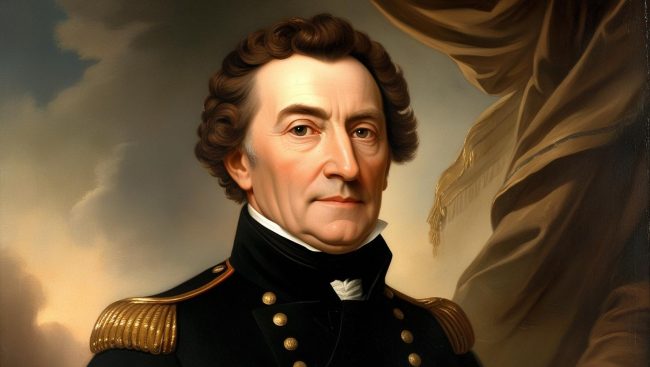Famous Africans in World History: General Alfred Dodds (French General)

General Alfred Amedee Dodds was a French military conqueror born in St. Louis, Senegal, on the 6th of February 1842. His father’s family was of Anglo-French origin, and part native-Indian (Métis) by both his father Henry Dodds and mother Marie Charlotte (nee Billaud). His father, Henry, served as the director of the Postal Service in St. Louis before it was merged with the telegraph service.
Visibly white, it is believed that Dodds identified primarily as a European even though he did not hide his African ancestry, as his great-grandfather was Senegalese. Dodds married his cousin Madeleine great granddaughter of General Blanchot, a deliberate alliance to promote his interest in a military career on which he embarked after his education at Carcassonne. Graduating from the Special Military School of St. Cyr in 1862, Dodds joined the marine infantry as a sub-lieutenant in 1864, becoming a lieutenant in 1867. During his service in the French colony of La Réunion, he distinguished himself during the riots of 1868 and was promoted captain for his services, in the course of which he was wounded. He served as a company commander in the Franco-German War, was taken prisoner at Sedan but escaped after the capitulation at Sedan and rejoined the Armée de la Loire and then the Armée de l’Est. He was held in Switzerland at the end of the war. As a reward for his noted military prowess at Bazeilles during the Franco-Prussian War of 1870, he was made Knight of the Legion of Honour. He then served in Africa (Senegal, 1871 to 1878) and in China (Cochin, 1878 to 1879) after which he became battalion leader, returning to serve in Senegal, participating in the fighting in Casamance from 1879 to 1883.
Dodds became Lieutenant colonel serving in the war of conquest in Tonkin and Colonel in 1887 serving in the counter-insurgency warfare in the Fouta Djalon in French Guinea. Dodds played a prominent part in the operations which brought the countries of Upper Senegal and Upper Niger under French rule. He led the expeditions against the Boal and Kayor (1889), the Serreres (1890) and the Futa (1891), and from 1888 to 1891 he served as the colonel commanding the troops in Senegal. At the close of 1891, he returned to France to command the eighth marine infantry as inspector-general at Toulon. He was decorated Commander of the Legion of Honour in 1891 and was given command of the 8th Colonial Army in Toulon. Then, in 1892, he was appointed Superior Commander of Dahomey and named Brigadier General, Inspector of Naval Infantry, and Grand Officer of the Legion of Honour before he led the Second Franco-Dahomean War against King Béhanzin. Leading a troop of Senegalese Tirailleurs (a corps of colonial infantry in the French Army, which was initially recruited from Senegal, French West Africa and subsequently throughout Western, Central and Eastern Africa), Dodds occupied Abomey the capitalofDahomey in November of that year, and in a second campaign (1894) he completed the subjugation of the country. Dodds was appointed senior commander of troops in Indochina (1895), then appointed General of Division in 1898. In 1900, he was given the High Command of colonial troops in French Indochina. From 1903 to 1907 he was High Commander of the Naval Infantry and named a member of the Supreme War Council after he was awarded the Grand Cross of the Legion of Honour and Military Medallion in 1907. Dodds retired from military service that year at the age of 65 years.
Despite his questionable allegiance to the French, which led to the destruction of one of West Africa’s most powerful pre-colonial states, Dodds remains famous within the African Diaspora as an example of African leadership.
Alfred Amedee Dodds died in Paris in 1922, leaving no heirs.
